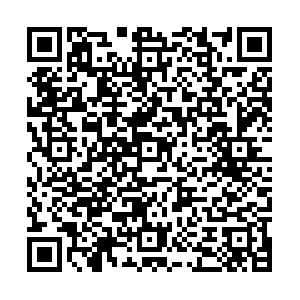An Analysis of the State of the Art of Ecolinguistics at Home and AbroadBased on ROST Content Mining System
-
摘要: 研究利用ROST CM 6.0软件对2020年国际、国内两场生态语言学学术研讨会的会议摘要手册进行了内容挖掘,分析国内、国际生态语言学界的当前热点和研究特点。通过对两场会议的横向对比研究并结合国内已有成果,发现国内外学者普遍关注生态语言学的本土化研究。国外研究体现了超学科属性,豪根范式发展更好,研究热点为可持续发展、经济等社会因素对生态的影响,但韩礼德范式的研究和生态语言学的应用研究有待进一步发展。国内研究的重点议题为生态话语分析、生态翻译学和外语的生态化教学。其中,生态话语分析是“重中之重”,分析对象来源广泛,并形成了相当规模与一定深度,但也存在方法单一、学科间交叉融合有待进一步提高和范式发展不平衡等问题。从分析中可以看到,未来国内研究应坚持本土化研究的同时更加关注多学科融合和传统范式之外的研究,这也是未来的潜在热点。Abstract: By applying the ROST CM 6.0, this paper analyzes the conference brochures of ecolinguistic conferences at home and abroad in 2020. Based on the results of content mining, this paper aims at finding the state of the art and the features in the academic field, and by horizontal contrast analysis and resorting briefly to the current literature, trying to identify the directions for future research. This study finds that both Chinese and international researches have attached great importance to the domestic topics; international researches shows great trans-disciplinary features, and focuses more on the Haugenian paradigm of ecolinguistics, whose heated topics include ecological sustainability, economy, etc. But Hallidayan paradigm needs further academic attention. In China, the heated topics for research are ecological analysis of discourse, eco-translatology, and an ecological paradigm of language learning and teaching. With the first topic being the center of ecolinguistic research in China, this study has shown there are some problems with Chinese ecolinguistic research. And on this basis, this paper points out future studies in China should persist on domestic features but in the meantime, trans-disciplinary research and other paradigms than traditional ones are potentially heated topics for research.
-

图 1 研究技术路线图

图 2 中国生态语言学研究热点聚类图谱
表 1 新词归并表
语言生态 生态语言学 和谐话语分析 生态话语分析 生态话语 多语主义 生态报道 豪根模式 及物性分析 教育语篇 生态翻译学 英译/英译本 语言生态学 及物性 视域 话语建构 评价理论 生态观 自媒体 新媒体 批评话语分析 语料库 话语分析 语法隐喻 抹除 主位分析 大学英语 英语教材 系统功能语法 破坏性话语 语码转换 多模态 语篇 视域 生态文明 生态文明建设 系统功能语言学 语言政策 词块 外语课堂 表 2 中国生态语言学研究热点词频统计表(%)
关键词 词频 生态话语分析 20.0 翻译 15.9 话语 15.3 语言 9.4 中国 7.6 环境 6.5 新闻 6.5 及物性 6.5 媒体 6.5 大学英语 5.8 表 3 国外生态语言学研究热点词频表(%)
关键词 词频 关键词 词频 environment(al) 17.1 nature 3.4 Nigeria(Nigerian) 10.4 sustainability 3.3 climate change 7.3 discourse 2.9 human 6.6 cultural 2.7 development 5.4 economic 2.6 ecological 4.9 oil 2.5 indigenous 4.4 region 2.4 languages 4.4 community 2.3 social 3.7 society 2.3 ecosystem 3.6 teaching 2.1 ecology 3.6% tourism 2.1% -
[1] HAUGEN E. The ecology of language [C] // DIL A S. The Ecology of Language: Essays by Einar Haugen. Stanford: Stanford University Press, 1972: 325-339. [2] 魏榕,何伟. 生态语言学的兴起与多样化发展: “第一届中国生态语言学战略发展研讨会”综述[J]. 北京科技大学学报(社会科学版),2017,33(4):38-41. [3] 高然,刘佳欢. 生态语言学的多样化发展趋势与超学科属性(Ⅱ)−“第二届中国生态语言学战略发展研讨会”综述[J]. 北京科技大学学报(社会科学版),2018,34(6):50-55. [4] 陈旸. 生态语言学研究从这里走向世界−第四届国际生态语言学研讨会综述[J]. 中国外语,2020,17(1):104-111. [5] 刘佳欢,高然. 生态语言学的多样化发展趋势与超学科属性(Ⅰ)−Andrew Goatly与Stephen Cowley教授生态语言学新思想[J]. 北京科技大学学报(社会科学版),2018,34(6):43-49. [6] COUTO H. Ecological approaches in linguistics: a historical overview[J]. Language Sciences, 2014(41):122-128. [7] CHEN S. Language and ecology: A content analysis of ecolinguistics as an emerging research field[J]. Ampersand, 2016(3):108-116. [8] 何伟,魏榕. 生态语言学: 发展历程与学科属性[J]. 国外社会科学,2018(4):113-123. [9] FILL A. Ecolinguistics: state of the art 1998[C] // FILL A & MÜHLHÄUSLER P. The Ecolinguistics Reader: Language, Ecology, and Environment. London: Continuum, 2001: 43-53. [10] LE VASSEUR T. Defining “ecolinguistics?”: Challenging emic issues in an evolving environmental discipline[J]. Journal of Environmental Studies & Sciences, 2015, 5(1):21-28. [11] 黄国文. 导读: 生态语言学与生态话语分析[J]. 外国语言文学,2018,35(5):449-459. [12] 李玖,王建华. 中国生态语言学研究概况的科学知识图谱分析[J]. 外国语言文学,2018,35(5):544-558. [13] 林美珍. 中国生态语言学研究现状与趋势−基于CNKI数据库的计量分析[J]. 北京科技大学学报(社会科学版),2017,33(6):31-39. [14] 黄国文,徐珺. 语篇分析与话语分析[J]. 外语与外语教学,2006(10):1-6. doi: 10.3969/j.issn.1004-6038.2006.10.001 [15] HALLIDAY M A K. New ways of meaning: The challenge to applied linguistics[C] // FILL A & MÜHLHÄUSLER P. The Ecolinguistics Reader: Language, Ecology, and Environment. London: Continuum, 2001: 175-202. [16] 黄国文. 生态语言学研究与语言研究者的社会责任[J]. 暨南学报,2016(386):10-14. [17] 孙毅. 多模态话语意义建构−以2011西安世界园艺博览会会徽为基点[J]. 外语与外语教学,2012(1):44-47. [18] 王红阳. 多模态广告语篇的互动意义的构建[J]. 四川外语学院学报,2007(6):31-34. [19] 陈风华,弗朗西斯科·维勒索. 多模态话语研究的知识图谱演化分析−基于国内外核心期刊的研究[J]. 华侨大学学报(哲学社会科学版),2017(6):154-166. [20] 朱启慧. 基于语料库的批评话语分析研究[J]. 长春师范大学学报,2021,40(3):109-113. [21] 胡庚申. 生态翻译学的研究焦点与理论视角[J]. 中国翻译,2011,32(2):5-9,95. [22] 王勃然,赵雯. 生态语言学视域下的大学英语在线开放课程教学生态建构[J]. 外国语文,2020,36(6):134-140. doi: 10.3969/j.issn.1674-6414.2020.06.019 [23] 王晋军. 生态语言学: 语言学研究的新视域[J]. 天津外国语学院学报,2007(1):53-57. [24] 艾尔文·菲尔,范俊军,宫齐. 当代生态语言学的研究现状[J]. 国外社会科学,2004(6):5-10. doi: 10.3969/j.issn.1000-4777.2004.06.002 [25] 赵蕊华,黄国文. 生态语言学研究与和谐话语分析−黄国文教授访谈录[J]. 当代外语研究,2017(4):15-18, 25. [26] 黄国文,赵蕊华. 生态话语分析的缘起、目标、原则与方法[J]. 现代外语,2017,40(5):585-596, 729. [27] 黄国文. 外语教学与研究的生态化取向[J]. 中国外语,2016,13(5):1, 9-13. [28] ALEXANDER R & STIBBE A. From the analysis of ecological discourse to the ecological analysis of discourse[J]. Language Sciences, 2014(41):104-110. [29] 黄国文,陈旸. 作为新兴学科的生态语言学[J]. 中国外语,2017,14(5):38-46. [30] STEFFENSEN S V & FILL A. Ecolinguistics: The state of the art and future horizons[J]. Language Sciences, 2014(41):6-25. [31] 辛志英,黄国文. 系统功能语言学与生态话语分析[J]. 外语教学,2013,34(3):7-10, 31. [32] 杨阳. 系统功能视角下新闻报道的生态话语分析[J]. 北京第二外国语学院学报,2018,40(1):33-45. [33] 李淑晶,刘承宇. 基于评价系统的生态话语分析−以特朗普退出《巴黎气候协定》的演讲为例[J]. 外语与外语教学,2020(5):65-76, 149. [34] 黄国文,陈旸. 自然诗歌的生态话语分析−以狄金森的《一只小鸟沿小径走来》为例[J]. 外国语文,2017,33(2):61-66. doi: 10.3969/j.issn.1674-6414.2017.02.010 [35] 牛耀方,张庆彬. 自然诗歌的生态话语分析−以华兹华斯《咏水仙花》为例[J]. 广东第二师范学院学报,2020,40(2):81-87. doi: 10.3969/j.issn.2095-3798.2020.02.012 [36] 常军芳,丛迎旭. 功能语言学视角下的生态话语分析模式建构−以中国环保部长报告为例[J]. 北京科技大学学报(社会科学版),2018,34(4):27-32. [37] 刘姝昕. 绿色语法: 基于COCA的oil搭配研究[J]. 北京科技大学学报(社会科学版),2018,34(6):27-32. [38] 刘珍珍. 生态语言学视角下WWF环保海报多模态话语分析[J]. 文化创新比较研究,2018,2(33):24-25. doi: 10.3969/j.issn.2096-4110.2018.33.012 [39] 王馥芳. 生态语言学和认知语言学的相互借鉴[J]. 中国外语,2017,14(5):47-55. [40] 常远. 论语言的心理生态环境−基于三元互动论和生态位理论[J]. 重庆科技学院学报(社会科学版),2019(1):73-76. [41] 王寅. 认知生态语言学初探[J]. 中国外语,2018,15(2):22-30. [42] 苏剑. 语言Q值与小语种语言存亡边界−基于语言经济学的模型[J]. 西部论坛,2011,21(1):52-57. doi: 10.3969/j.issn.1674-8131.2011.01.010 [43] 肖自辉,范俊军. 语言生态的监测与评估指标体系−生态语言学应用研究[J]. 语言科学,2011,10(3):270-280. [44] 张瑞杰. 言语行为与生态文明: 与生命科学的融汇和贯通−“第四届国际生态语言学会议”综述[J]. 北京科技大学学报(社会科学版),2019,35(5):17-25. -




 下载:
下载:


